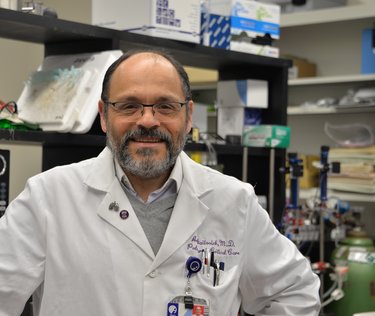Albany Med, seeking signature for long COVID, gets $3.9M grant
Scientists at Albany Medical College are working with scientists at the University of Wisconsin to find a signature, in blood samples, to identify patients who are most vulnerable to long COVID.
Albany Med has been awarded a five-year, $3.9 million grant from the National Institutes of Health to study biomarkers in the blood of patients who have had COVID-19 but continue to experience symptoms for weeks or months after the initial infection.
“Ultimately, our goal is to develop a blood test that pinpoints those who are most susceptible to severe forms of COVID-19 and identifies the likelihood that someone will experience long COVID,” said Ariel Jaitovich, M.D. in a release from Albany Med.
Jaitovich, a pulmonary and critical care physician who teaches at the college, is leading the study.
Working with scientists at the University of Wisconsin-Madison, Jaitovich will analyze blood samples drawn from patients at Albany Medical Center’s outpatient Post-COVID Care Clinic.
He and his team will sequence the DNA, then the University of Wisconsin scientists will perform additional complex bioinformatics computations. Through whole genome sequencing, the researchers will work to establish the subphenotypes of long COVID.
“We hope to learn whether patients with long COVID have a certain molecule circulating in the blood that can define or indicate that they have the condition,” said Jaitovich in a video explaining his work.
“It could monitor the effect of a drug intended to alleviate those symptoms,” he said.
During the first year of the pandemic, Jaitovich and his partners at the University of Wisconsin pioneered the use of mass spectrometry, an analytical tool that measures the mass of biomolecules, to identify the molecular signatures of COVID-19.
“This new analysis will advance our knowledge of the epigenetic signature of long Covid, helping us to predict which patients are most vulnerable to developing lingering symptoms and opening the doors to future clinical trials aimed at improving patients’ outcomes,” said Jaitovich.



